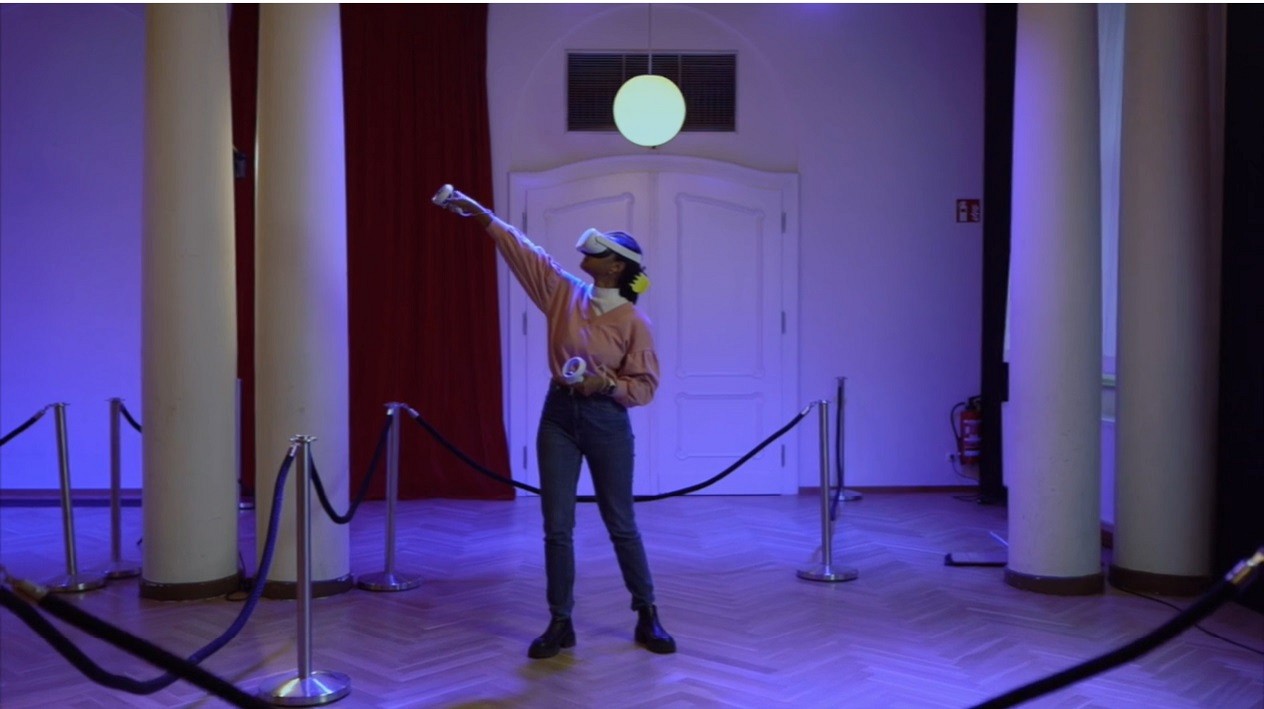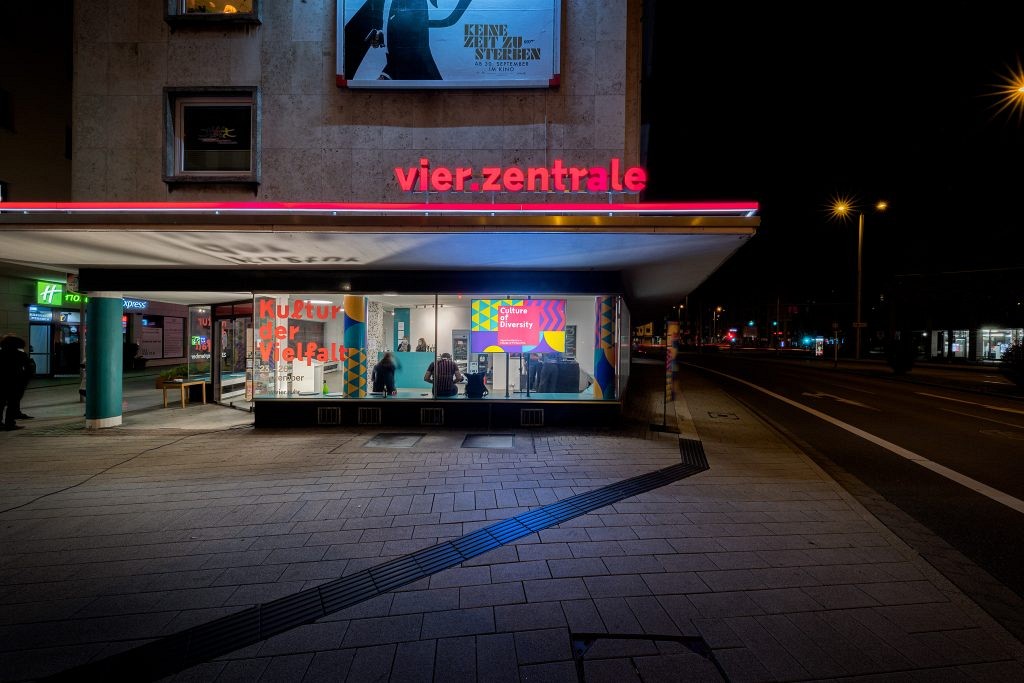Cooperations
Theater der erweiterten Realitäten

Castle Heldenplatz 3D oder Die große Gereiztheit
Virtual-Reality-Erfahrung von KGI
A project to continuously explore and implement virtual, immersive and personalized theatrical worlds.
In the face of rapid and dynamic societal shifts, theater should expand its narrative and perspective-shifting capabilities to be the observatory that brings these worlds into view, and to embark on collective departures into the unknown and unconscious. The old promise of the red curtain, that behind it a world opens up that we do not know, must be renewed and technologically expanded. The critical, reflective handling of digital technologies of reality expansion can be helpful in this.
Technology, which as a phenomenon of civilization decisively shapes the present and the future, is to become the subject of critical debate and artistic-sociological research.
The aim of the project is to establish a continuous reflexive research area of artistic production, a new "branch" dedicated to the practical testing as well as the artistic-scientific research of virtually expanded theater formats.
With this project, Theater an der Ruhr and its partners Akademie für Theater und Digitalität/ Theater Dortmund, Arbeitsgruppe für Mixed Reality and Visualization (Mirevi) der Hochschule Düsseldorf, and Dr. Jonathan Harth (Chair of Sociology at the University of Witten/Herdecke) are advocating to more decisively locate theater work in the digitally transformed society and to jointly break new ground by pooling their respective competencies and resources.
Supporter:
Ministerium für Kultur und Wissenschaft des Landes Nordrhein-Westfalen im Rahmen von NEUE WEGE in Zusammenarbeit mit dem NRW KULTURsekretariat.
vier.ruhr

There are three very different, lively theater institutions in Mülheim an der Ruhr: The festival Mülheimer Theatertage "Stücke" for contemporary drama, the ensemble theater Theater an der Ruhr and the co-production house Ringlokschuppen Ruhr. Together they form the theater alliance vier.ruhr since September 2019.
Die Vielen
In many cities, regions and federal states, around 2,000 signatory cultural and art institutions, artists and active members of the cultural landscape are already sending out effective signals within the framework of DECLARATIONS OF THE MANY. The declarations stand for an open society, its democratic shaping, for respect, diversity and tolerance, artistic freedom and freedom of the press, against racism, discrimination and right-wing national authoritarianism.